As operational costs continue to rise, it's crucial for restaurants to establish cost cutting techniques, without compromising their quality of service and taste of food. Food waste can be a considerable expense for venues and is a significant concern for the industry, considering global warming and sustainability issues.
Customers now prioritise businesses that are socially aware, and actively reducing food waste can help create a more sustainable and valued community.
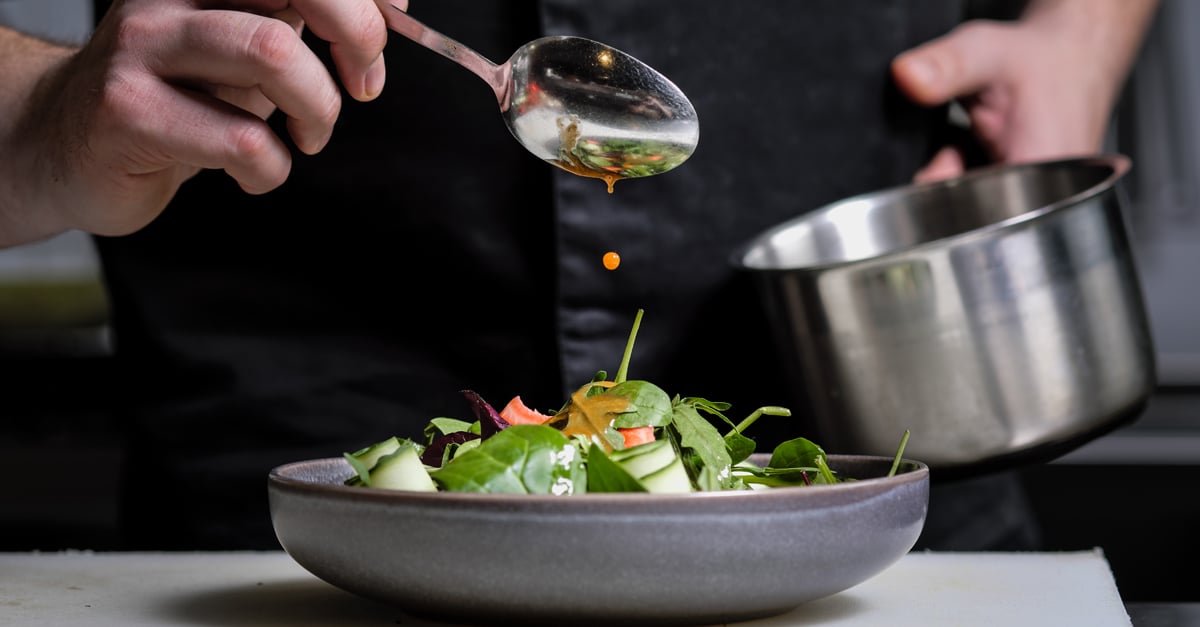
Why reduce food waste in the hospitality industry?
Food waste has serious repercussions on the environment with waste from all households, restaurants, pubs, cafes, bars and other businesses contributing to this.
Reducing food waste in the hospitality industry is crucial for environmental and economic reasons. It helps minimise the industry’s environmental footprint by conserving resources and reducing greenhouse gas emissions. It is estimated that food wastage alone costs the economy around $36.6 billion per year. By actively reducing food waste, the hospitality industry can make a positive impact on the environment and society as a whole. It isn’t just an environmental concern, it also affects your bottom line.
How CAN your restaurant reduce food waste?
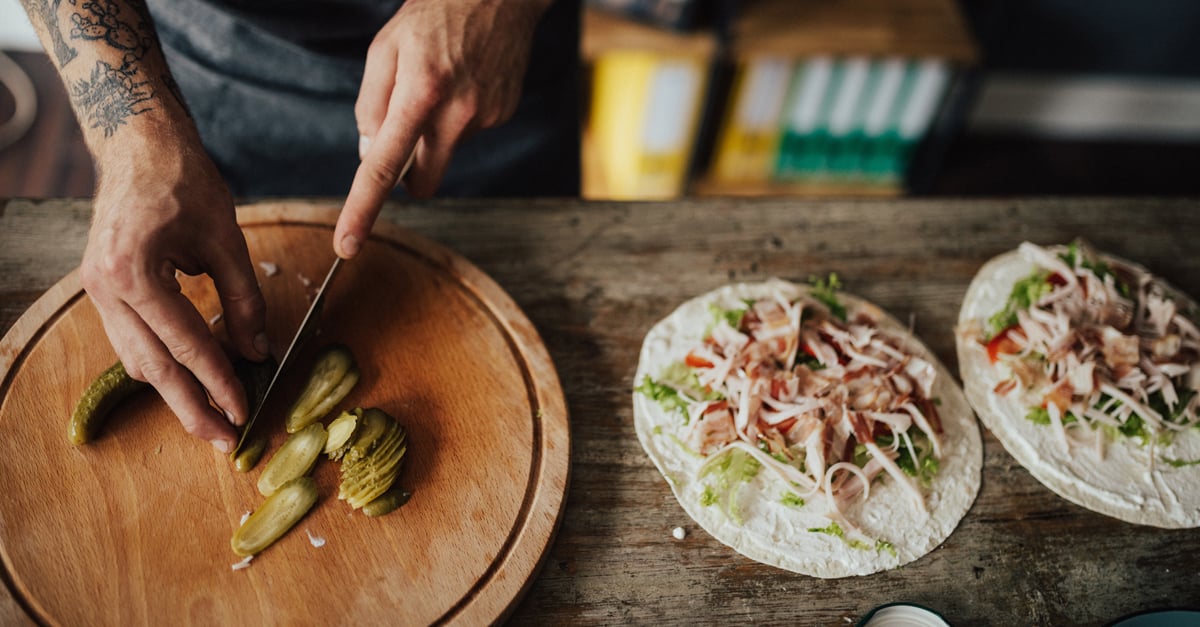
1. Repurposing produce
Hospitality venues can make a significant impact by repurposing ingredients that are reaching the end of their shelf life. For instance, changing up your menu that incorporates vegetables nearing expiration can transform these ingredients.
Leftover vegetables can also be repurposed by pickling them. This technique not only extends the shelf life of the vegetables but is also cost efficient. Pickled vegetables can be incorporated into new dishes or used to enhance existing ones on your menu.
2. Create specials
To address excess stock or items that are not selling as anticipated, introducing specials can be an effective solution. Whether it's over-ordered alcohol, meat, or vegetables, offering special deals can expedite the sale of these items, preventing unnecessary waste and putting cash into your pockets.
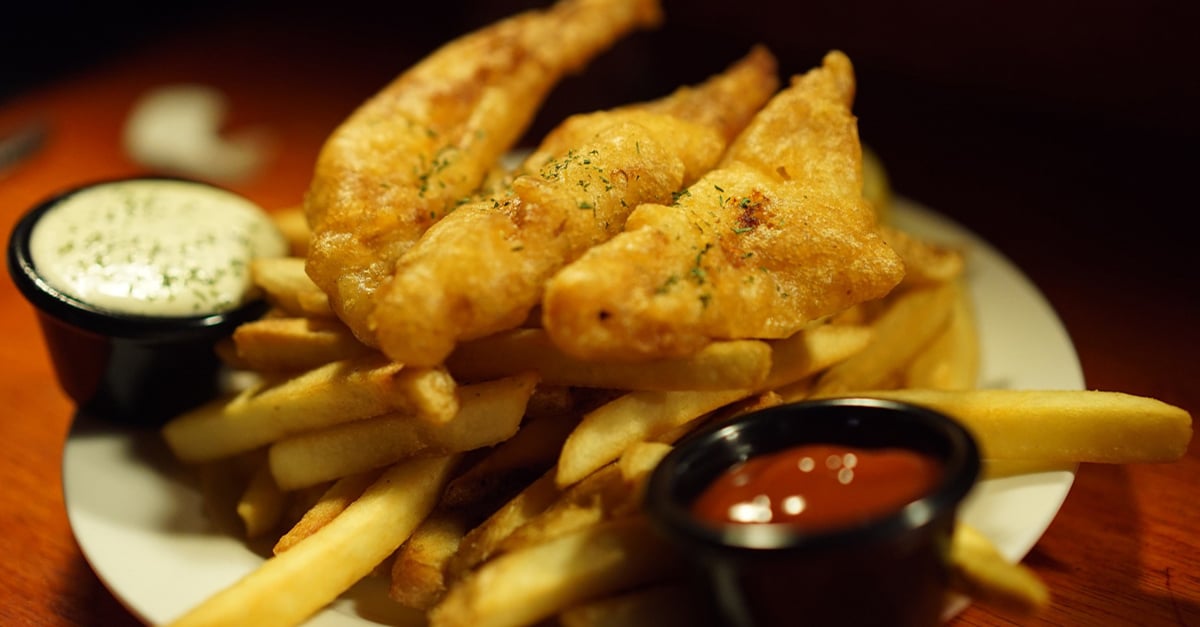
3. Streamline your menu
A lengthy menu can lead to higher costs and increased food wastage. Having 50 different dishes on your menu and needing a variety of ingredients will increase the likelihood of certain items going unordered. Not only is wastage an issue but storage space will also need to be factored in. By streamlining your menu, you can save both money and waste.
4. Offer takeaway containers
Customer service is crucial and makes the difference between a good venue and a great venue. Providing takeaway containers for customers who can't finish their meals can make a positive difference. By enabling customers to take their leftovers home, you not only enhance their experience but you are also limiting what you throw out. Restaurants should also consider looking at environmentally friendly takeaway containers rather than plastic to be more sustainable.
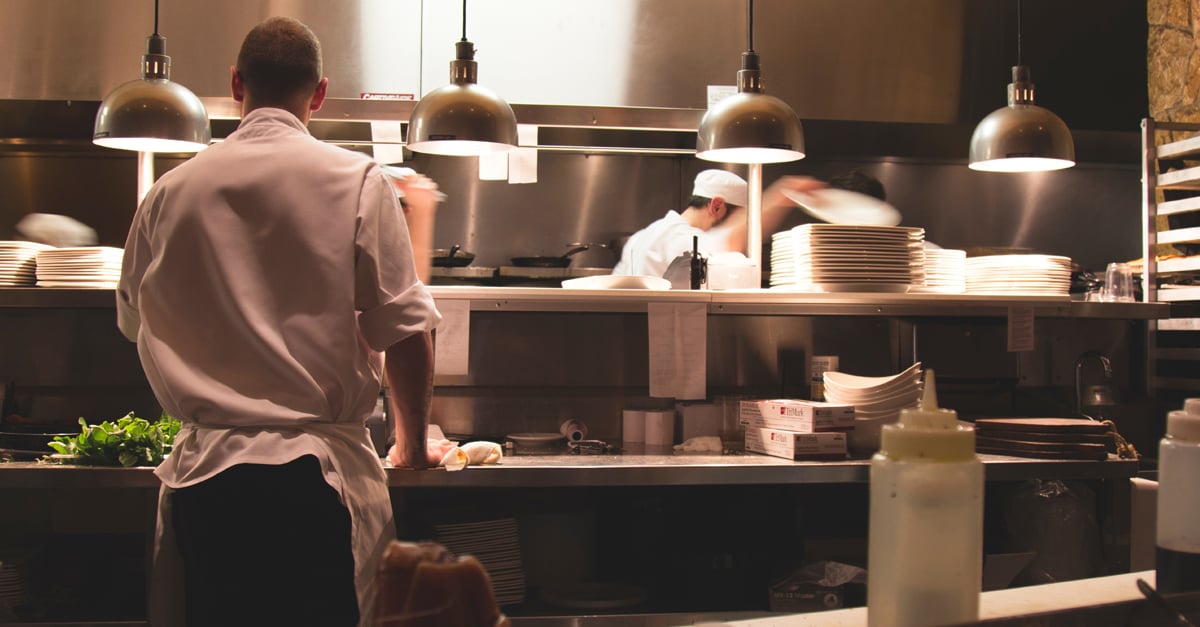
5. Staff training
Investing in proper training for your staff holds numerous benefits for your business. Minimising mistakes in meal preparation, whether mistakes are made by wait staff or chefs, help reduce food waste and prevent financial losses. Implementing procedures that minimise errors and ensuring everyone in the business understands them can significantly reduce costly mistakes. Food will be sent back to the kitchen less due to preparation errors. Not only this but with adequate training staff feel more valued and empowered to go above and beyond. This in turn can also help you retain your hospitality staff which is so vital with the current industry riddled with staff shortages.
6. Track your wastage
Monitoring portion sizes is essential. If the same dish consistently returns to the kitchen unfinished, it may indicate an oversized portion. Chefs should consider adjusting the portion sizes to avoid over serving customers, preventing wastage and unnecessary expenses. However, you also don’t want to be underserving your customers leaving them still hungry and feeling ripped off. It’s a balancing act to get it right.
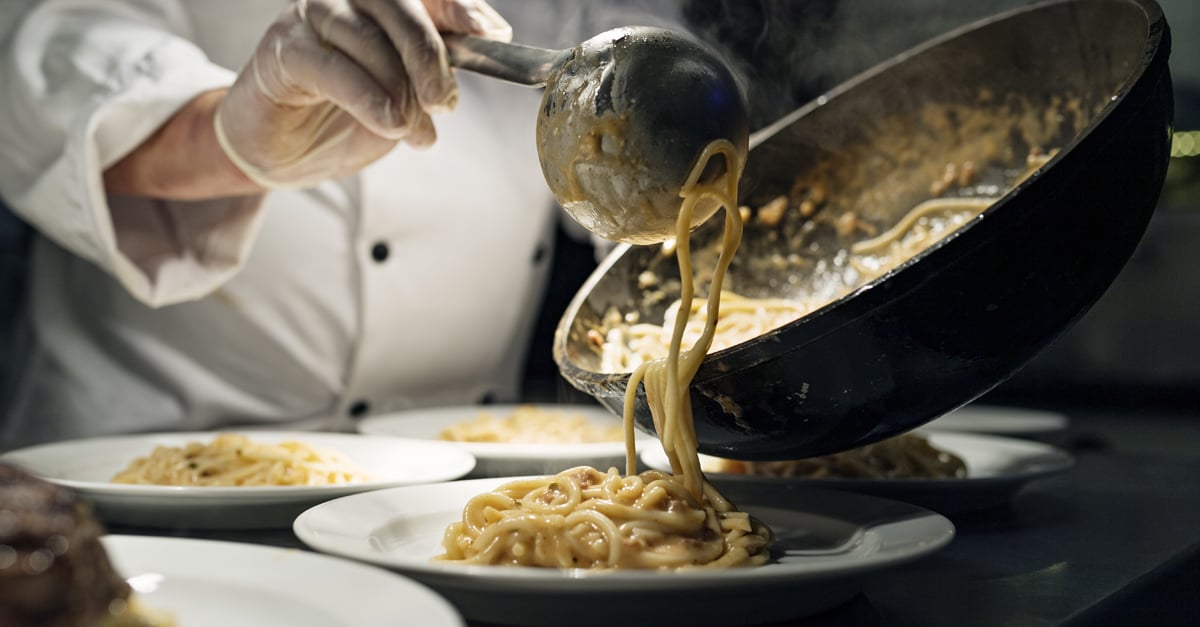
7. Monitor trends
Like everything, food and beverages go through trends of popularity as hospitality operators would know. Studying reports on customer trends and historical performance can help anticipate stock levels required during different time periods throughout the year. Food and drink trends often vary seasonally, and aligning your menu accordingly can prevent overstocking and potential wastage.
8. Donate excess food
Venues should explore local government schemes and charities for donating their extra food and leftovers to those in need. By participating in these initiatives, hospitality businesses can make a positive impact on their community, especially when the food would otherwise go to waste.
9. Optimise food storage
Proper food storage practises are often overlooked but plays a crucial role in preventing spoilage or food contamination. Using airtight containers for ingredients and implementing appropriate storage practises helps preserve freshness and extend the shelf life of your ingredients, minimising waste.
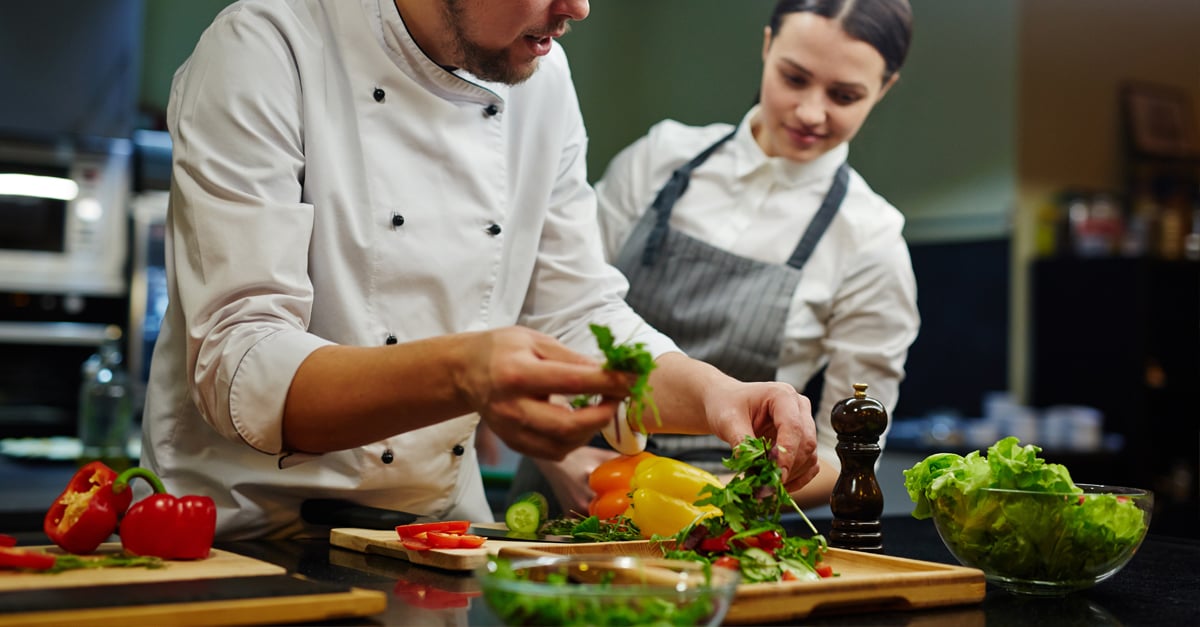
10. Order food in season and regularly update your menu
Including seasonal items on your menu reduces the need for ingredients to be shipped from distant locations, as they are readily available. Items that may have been shipped in also have a shorter shelf life as they aren't as fresh as something you could pick up locally. Local ingredients decrease the likelihood of spoilage and contributes to minimising food waste. Additionally, regularly reviewing and updating your menu based on popularity and season can impress customers and keep them happy.
How OrderMate can help reduce your restaurants food waste?
OrderMate Stock Inventory control
Hospitality technology can be a powerful tool in helping you reduce food waste. Using stock inventory control will help make sure your stock doesn’t go to waste. Knowing exactly what you have on hand can help you from over ordering or under ordering ingredients. By keeping on top of your stock you can more efficiently manage it.
Utilising OrderMate’s Stock Inventory control can be a game-changer in your efforts to reduce food waste. With real-time visibility of your inventory, you can accurately track what you have on hand, enabling you to make informed decisions about ingredient procurement. By staying on top of your stock levels, you can prevent unnecessary waste and optimise your inventory management practices. This not only helps reduce food waste but also ensures cost-effective operations for your business.

Combos and Triggers
Creating specials to help move your stock couldn’t be easier with OrderMate Combos and Triggers functionality. These allow you to easily put through promotions and specials on the POS, for example, buy one get one free glass of wine etc. These allow your staff members to put through specials with ease. Reducing button taps resulting in a streamlined point of sale process and customer experience.
Easy Menu Management
Easy menu management is a game-changer for the hospitality industry when it comes to waste reduction. OrderMate provides hospitality operators with user friendly menu management tools that streamline their menu operations. Operators can update their menus with ease to reflect the changing seasonal produce, allowing them to embrace a dynamic and seasonal menu approach.
Talk to one of our hospitality consultants today to find out how we can help you implement technology that helps reduce your food wastage so you can run a better business.
Published:


